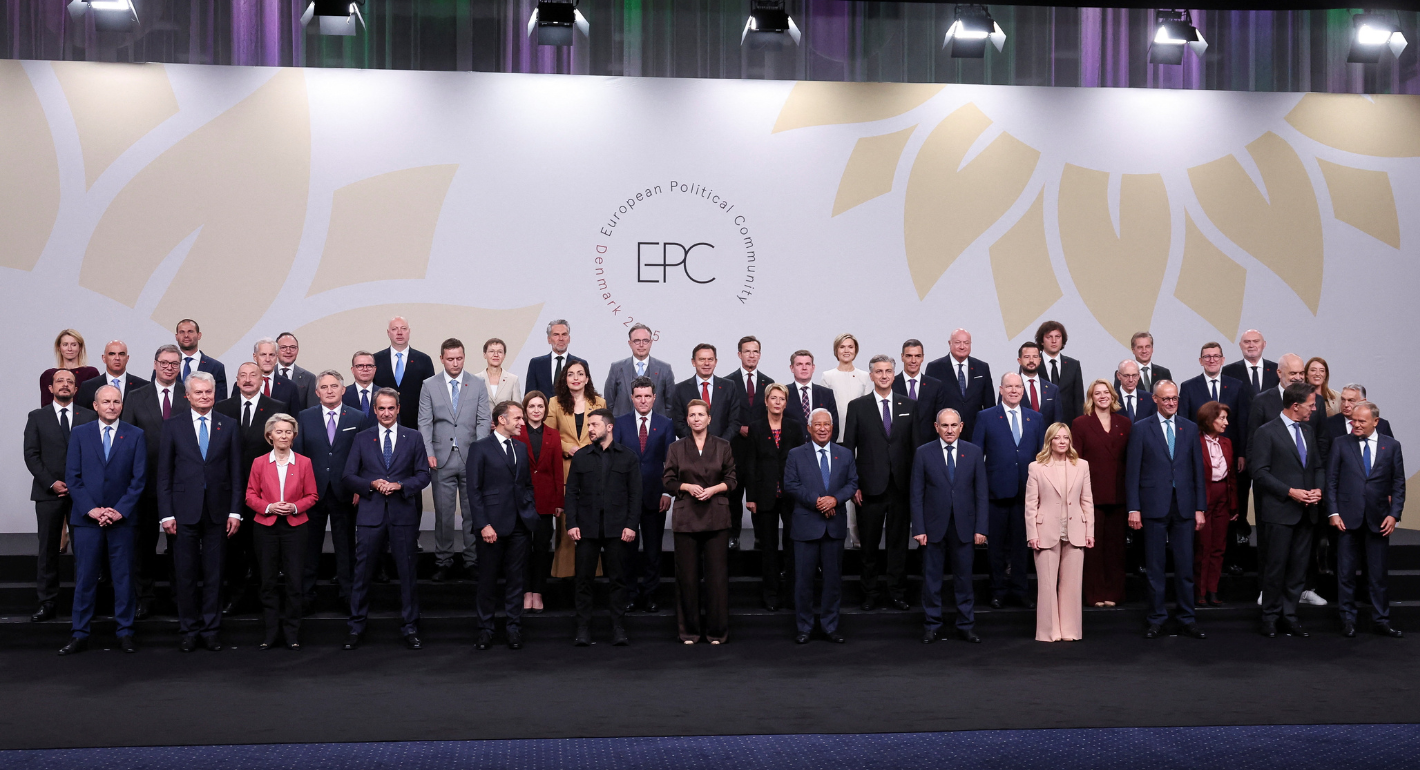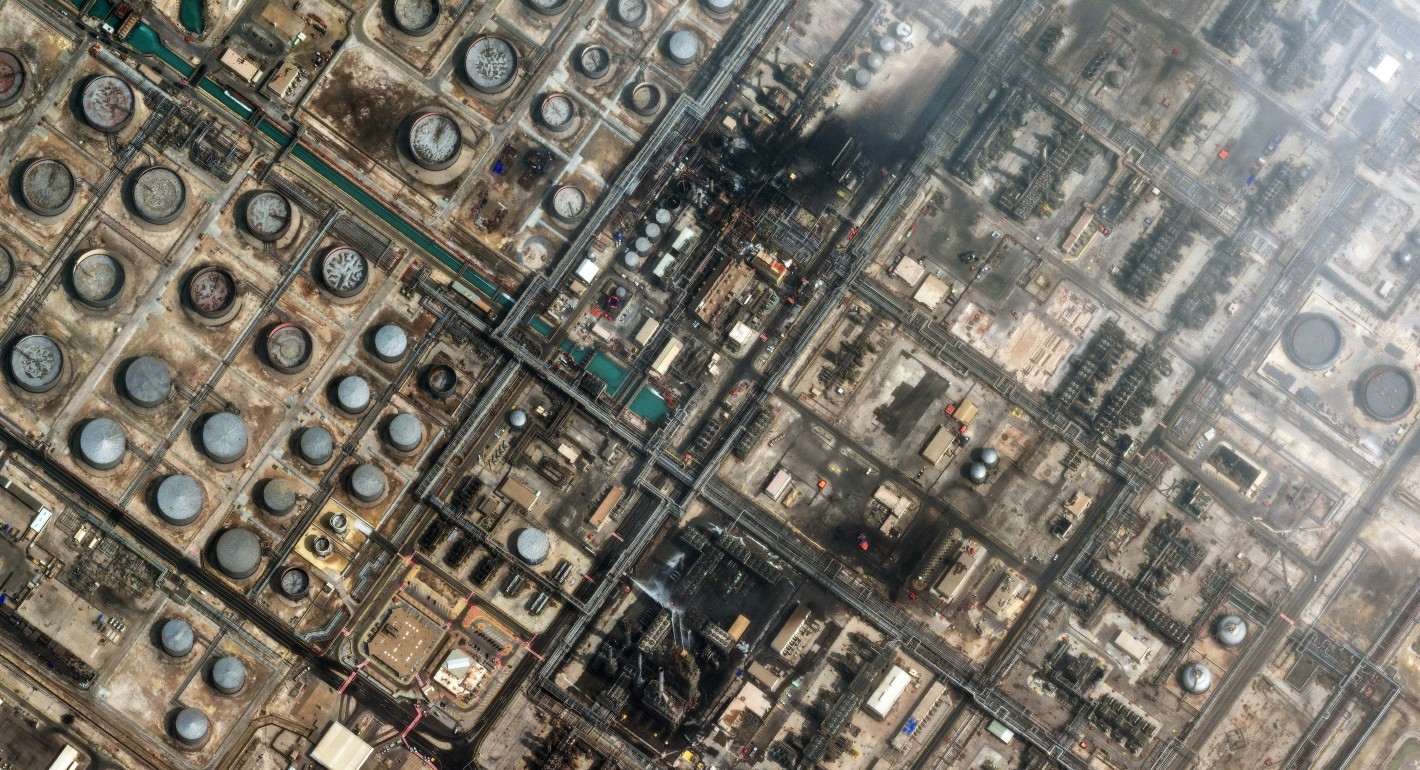Dmitri Trenin
{
"authors": [
"Dmitri Trenin"
],
"type": "legacyinthemedia",
"centerAffiliationAll": "",
"centers": [
"Carnegie Endowment for International Peace",
"Carnegie Russia Eurasia Center"
],
"collections": [],
"englishNewsletterAll": "",
"nonEnglishNewsletterAll": "",
"primaryCenter": "Carnegie Russia Eurasia Center",
"programAffiliation": "",
"programs": [],
"projects": [],
"regions": [
"North America",
"United States",
"Caucasus",
"Russia"
],
"topics": [
"Political Reform",
"Democracy",
"Economy",
"Foreign Policy"
]
}
Source: Getty
Russia's foreign policy: self-affirmation, or a tool for modernization?
The vision is grand, the reality less so. Russia's foreign policy has been merely assertive and reactive up till now. Will the new President manage something more constructive?
Source: Open Democracy

In the ten years since the financial crash of 1998, Russia's position in the world has grown substantially stronger. By the mid-2000's, favourable conditions on the energy market and the Russian government's intelligent macroeconomic policy combined to give the Kremlin a position of power it had not enjoyed since the mid-1980's. Russia has used this position to reassert itself as a great power on the international stage- an autonomous centre of power and influence. Its present leaders have impressive ambitions.
The vision
Let us consider Russia's development strategy to 2020, as announced by Putin and Medvedev. This is not actually a strategy, more a vague outline of the future. It envisages Russia as a leading world economy (the fifth largest in terms of GDP). It boasts social sustainability (with the majority of the population being middle class) and political stability (a multi-party system in which the ruling party holds sway, and a well-developed set of State institutions). Such a Russia might finally be able to modernise its armed forces and renew itself as a modern military power capable of projecting power on a global scale. It will also exploit the potential of its ‘soft power': the Russian world will become attractive, the Russian view convincing.
This Russia will not only protect and promote its national interests effectively. It will compete as an equal player with America, Europe and China. It will be the cornerstone of regional integration in Eurasia, a global ‘mediator' between East and West, North and South, and the Christian and Muslim worlds. It will be the intellectual leader of the twenty-first century, generating advanced scientific and technical ideas and an ‘integrated', ‘universal' world view that will trump the insularity and unilateralism of Western value systems and modernise non-Western ones.
The reality
This vision is awesome, particularly when you compare it with the reality today. Russia's foreign policy today is distinguished not by a strategic approach. It is tactical, at best pragmatic, to use the word by which it has been enthusiastically marketed.
Words fail: Moscow took advantage of soaring energy prices. But even its much-vaunted ‘geo-energy' policy is really no more than the sum of its parts: the Northern flow, the Southern flow, the Caspian pipeline, the Eastern Siberia-Pacific Ocean oil pipeline, and so on.
Moscow's policies on the international front are as reactive as ever, despite the vastly greater opportunities, despite the fact that it is openly critical of the West, particularly the United States. While Kremlin insiders no longer conceal their disapproval of the activities of the White House, they still seem unable to come up with an agenda of their own. What attempts they do make - placing Zimbabwe on the agenda for the G8 Summit in Hokkaido, for example - appears to be no more than a response to Western policies.
The foreign policy mind map
Consider the mindset of most key foreign policy decision-makers. It is a bizarre combination of faith in tradition (classic power-broking in the Romanov style), recognition of economic realities (globalization Gazprom-style), with a weakness for virtual, post-modern constructs (thanks to the political technocrats employed by the Kremlin administrators).
Let us break down this mind map into its component parts. In general, the international community is engaged in power struggles and rivalries in which every state is out for itself. But this rivalry can result in co-operation, which in turn affects outcomes. This does not have to be a zero-sum game, although someone usually does end up the gainer. Every issue has a price tag. Any response must remain within the limits of what is appropriate. Success is expressed in material terms.
Lessons of the collapse
The defining event for this generation of Russian leaders was the collapse of the Soviet Union. This ‘greatest geopolitical catastrophe', as Vladimir Putin called it, taught most of them important lessons. Firstly, the sustainability of the State is based on the competitiveness of the national economy. The collapse of the economy will lead to the destruction of the state, however large and powerful its armed forces.
Economic reform is the first step towards modernising the country, but the success of long-term reform depends on the degree and effectiveness of political control. Modernisation generally happens in stages. Since the economy is the foundation, the first stage consists in creating a middle class that will be the bedrock of social stability. The next stage involves the establishment of a democratic political system. The question is when and how the ruling elite will consider it appropriate to hand over the controls to the wider society.
Without rejecting democracy per se, Russian leaders insist that the country find its own path to democracy and not imitate other models or seek to apprentice itself to foreign masters. The very term sovereign democracy contains its own declaration of equality with those Western masters. Indirectly, it also implies what the Russian Federation's role model on the world stage is: according to the logic of the Kremlin ideologists there is only one true sovereign democracy: the United States. All others are either undemocratic, like China, or not sovereign enough, like the European Union countries.
By way of summary, let us consider the Kremlin's fundamental maxims on foreign policy: Russia is concerned with Russia itself, not with some arcane empire or abstract universal concerns. Russia is concerned with business: what's good for Gazprom is good for the country. Russia will not let anyone interfere in its internal affairs - sovereign democracy.
Relations with CIS countries
However, the absence of a foreign policy strategy makes it is hard to discuss the country's priorities.
Russian leaders routinely emphasize that countries of the Commonwealth of Independent States (CIS) are of paramount importance in the hierarchy of Russia's interests. Dmitri Medvedev's first overseas visit will take him to Kazakhstan (en route to China, which is in itself indicative). In reality, however, the situation is far less certain. The so-called ‘coloured' revolutions in Ukraine, Georgia and Kirgizia have forced Russia to rethink its policy vis-a-vis the new states that border the former USSR. Moscow abolished the system of imperial preference in the gas trade, bringing an end to what was already the former Soviet Union. Then it began to make distinctions between the different states. However, it soon became clear that the stick was going to work better than the carrot. Objectively, Russia clearly dominates the CIS space. But it has no influence, let alone leadership, there. Its relations with a whole series of former Soviet republics are strained, and some have been permanently soured. The notion of neighbourliness, of creating a ‘platform for integration' has remained in the realm of good intentions.
Russia's ‘European choice'
In the early 2000's, Vladimir Putin announced that Russia had made a ‘European choice'. Since then, relations with the European Union have become rather more pragmatic. Energy resources are the main link between the two sides. Russia is constantly offering Europeans an exchange of assets, but Europe is in no hurry to take advantage of this offer. Russia's lack of transparency deters it, as does the fact that the rules governing its economy remain unclear. Moscow refuses to accept that the discrepancy between its code of conduct and the way it is applied really is a major obstacle to closer cooperation, even on an economic level, between the EU and the Russian Federation.
Faced with European scepticism, Moscow has begun to regard the EU not as an essential long-term strategic partner for pan-European integration, but as an economic and political competitor to the Russian Federation. As a result, Russia could be missing out on the opportunity of speeding up its modernisation process and consolidating its geopolitical position.
US-Russia, a soured relationship
Since the failure of President Putin's attempted rapprochement with America in the immediate aftermath of 11 September 2001, both countries have grown tired of one another.
The Kremlin sees US foreign policy as a problem for the Russian Federation and a threat to global security. Its military policy is regarded as ultimately anti-Russian. Russian military figures have had no qualms about publicly identifying the US as the enemy from whom Russia needs to defend itself militarily and politically, as in Soviet times. This message is broadcast both within Russia, as a means of rallying support for the Kremlin, and beyond its borders, as a means of forcing Washington to take Moscow's security issues seriously. However, Moscow can ill afford to ignore the possible consequences of this provocative stance: if Russia were to become involved in an arms race, that would be the end of the Kremlin's 20-year plans.
While Moscow is an interested spectator of the US presidential campaign, it has no particular expectations. The cooling off of political relations with the US and various EU countries is now regarded as a natural consequence of Russia's stronger position. Any hopes the country may have are now pinned on economic partners who foster relations with Russia for personal gain. These are considered to be much more valuable partners than the governments of their particular countries.
By the end of Putin's presidency, Moscow was making a concerted effort to exert media and propaganda pressure on US and European organizations and elites. Any serious attempt to engage with America constructively is seen as doomed to failure. Instead, PR campaigns and propaganda ensure that Russia's relationship with the world's leading power will not improve.
Relations on the Asian front
While relations with Europe and America stagnate, the relationship with China appears to be flourishing. President Medvedev's first visit outside the CIS will take him to Peking.
However, Russia's foreign policy towards China is not really coherent strategically. Russia has no illusions about China. It is a great power with growing ambitions. But on the whole it is happy with the way the People's Republic negotiates its interests. So Russia chooses to say nothing about the long-term prospects for its relations with China. Satisfaction is tinged with uncertainty. We have to conclude that the future of the relationship will depend largely on Peking. Moscow will await developments, and react, as usual.
As far as other Asian partners are concerned, relations are developing more slowly than with China. There has been some progress in economic relations with Japan. But the political impasse on territorial issues remains. The notion of using the relationship with Japan to speed the development of the Far East and Siberia is not even on the agenda.
Relations with India, though officially amicable, are stagnating, with the exception of a bit of military and technical cooperation and the odd energy project. The fact that India's economy is booming has had virtually no impact on Moscow's foreign policy. South Korea, like Japan, has scarcely become involved in the project of modernization in Russia's Far East.
Return to the Middle East
The southern, Muslim strand is becoming more important in terms of Russia's foreign policy. While waging a relentless war on Islamists, separatists and terrorists, Moscow has managed to avoid disputes with key Muslim countries. Indeed, it has even succeeded in consolidating relations and returning to the Middle East after a ten-year hiatus.
The appeasement of Chechnya, however relative and incomplete, has stabilised the situation around Russia's southern borders. In Central Asia and the Caspian Sea region, Moscow has forged working relations with new states. At the same time, Russia remains committed to maintaining the status quo in places where the regimes are facing serious challenges. However much Russia may criticise the US stance on Iran or the work of Western coalitions in Afghanistan, it has no contingency plan should the situation in these countries suddenly change.
In short, Russia is still more inclined to criticise the proposals of others, rather than pursuing its own foreign policy. Issues of climate change, poverty, and world finance remain of marginal in Russia's foreign policy, which is chiefly concerned with the interests of the Russian State itself.
Dmitri Medvedev has become the President of a country which has increased its standing in the world. But this has not come about as the result of a successful, proactive foreign policy. Russia's third president will need to decide for himself what to do with the country's foreign policy. Will it remain a tool of Russian self-affirmation? Or will it become a resource for modernisation?
About the Author
Former Director, Carnegie Moscow Center
Trenin was director of the Carnegie Moscow Center from 2008 to early 2022.
- Mapping Russia’s New Approach to the Post-Soviet SpaceCommentary
- What a Week of Talks Between Russia and the West RevealedCommentary
Dmitri Trenin
Recent Work
Carnegie does not take institutional positions on public policy issues; the views represented herein are those of the author(s) and do not necessarily reflect the views of Carnegie, its staff, or its trustees.
More Work from Carnegie Endowment for International Peace
- Global Instability Makes Europe More Attractive, Not LessCommentary
Europe isn’t as weak in the new geopolitics of power as many would believe. But to leverage its assets and claim a sphere of influence, Brussels must stop undercutting itself.
Dimitar Bechev
- Iran Is Pushing Its Neighbors Toward the United StatesCommentary
Tehran’s attacks are reshaping the security situation in the Middle East—and forcing the region’s clock to tick backward once again.
Amr Hamzawy
- The Gulf Monarchies Are Caught Between Iran’s Desperation and the U.S.’s RecklessnessCommentary
Only collective security can protect fragile economic models.
Andrew Leber
- Duqm at the Crossroads: Oman’s Strategic Port and Its Role in Vision 2040Commentary
In a volatile Middle East, the Omani port of Duqm offers stability, neutrality, and opportunity. Could this hidden port become the ultimate safe harbor for global trade?
Giorgio Cafiero, Samuel Ramani
- Europe on Iran: Gone with the WindCommentary
Europe’s reaction to the war in Iran has been disunited and meek, a far cry from its previously leading role in diplomacy with Tehran. To avoid being condemned to the sidelines while escalation continues, Brussels needs to stand up for international law.
Pierre Vimont








